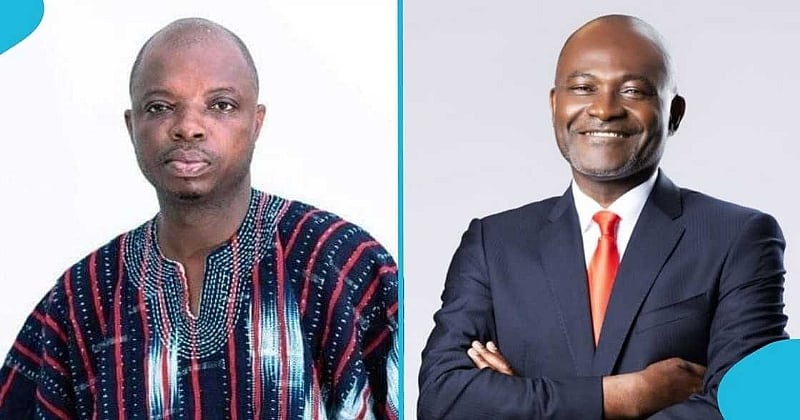The recent public spat between Kennedy Ohene Agyapong, former Member of Parliament for Assin Central, and Kwame Baffoe Abronye, Bono Regional Chairman of the New Patriotic Party (NPP), has taken another turn. The initial clash occurred during the opposition party’s post-election thank-you tour in Berekum, escalating into a public exchange of insults. While the on-site confrontation seemingly ended with a truce, Abronye reignited the feud on Wontumi Radio, labeling Agyapong as a “devil” and “ungrateful.” This latest outburst has prompted a formal response from Agyapong’s camp.
Agyapong, through a statement issued by his personal assistant, Prince Adjei, has publicly forgiven Abronye. This act of forgiveness, however, is coupled with a firm condemnation of Abronye’s inflammatory remarks and a broader call for responsible discourse within the NPP. The statement underscores the importance of party unity, particularly as they look towards the 2028 elections. While acknowledging the right to free speech, Agyapong’s camp emphasizes the crucial role of responsibility in public pronouncements, stressing that unchecked verbal attacks can undermine party cohesion. They caution against internal squabbles that distract from the overarching political goal of unseating the incumbent National Democratic Congress (NDC).
The statement serves as a plea for unity and a strategic reminder of the larger political landscape. It argues that the NPP’s primary focus should be on the NDC, their political adversary, rather than engaging in internecine conflicts. By emphasizing the need to redirect energy towards the opposing party, the statement frames internal disputes as counterproductive and potentially damaging to the NPP’s electoral prospects. The message champions a united front against the NDC, suggesting that a cohesive NPP is essential to achieving their political objectives and ultimately serving the Ghanaian people.
Agyapong’s response, while offering forgiveness, also utilizes the opportunity to underscore a broader message of intra-party unity and discipline. It’s a strategic move to not only address the immediate conflict but also to set the tone for future interactions within the party. By publicly forgiving Abronye, Agyapong takes the higher ground, presenting himself as a unifying figure within the NPP. Simultaneously, the condemnation of Abronye’s words serves as a warning against divisive rhetoric and a reaffirmation of the party’s commitment to respectful dialogue. This dual approach aims to both mend the immediate rift and promote a more constructive environment within the party ranks.
The public nature of this exchange highlights the ongoing tensions within the NPP. While the party is currently in opposition, internal dynamics and individual ambitions are clearly at play. This incident underscores the importance of managing these internal dynamics effectively to present a united front against the ruling NDC. The emphasis on unity and the condemnation of divisive language also serves as a message to other party members, encouraging a focus on shared goals rather than personal agendas.
In essence, Agyapong’s response transcends the immediate personal conflict with Abronye. It becomes a platform to advocate for broader principles of unity, responsibility, and strategic focus within the NPP. By publicly extending forgiveness and simultaneously calling for more measured discourse, Agyapong positions himself as a leader concerned not only with personal grievances but also with the overall health and strategic direction of the party. The statement serves as a call to action, urging the NPP to prioritize its collective goals and work together to achieve electoral success in the future. The incident and its aftermath provide a window into the internal dynamics of the NPP and the challenges of maintaining unity within a politically ambitious and diverse party.


